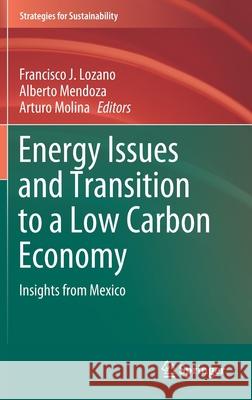Energy Issues and Transition to a Low Carbon Economy: Insights from Mexico » książka
topmenu
Energy Issues and Transition to a Low Carbon Economy: Insights from Mexico
ISBN-13: 9783030756604 / Angielski / Twarda / 2021 / 307 str.
Kategorie:
Kategorie BISAC:
Wydawca:
Springer
Seria wydawnicza:
Język:
Angielski
ISBN-13:
9783030756604
Rok wydania:
2021
Wydanie:
2022
Numer serii:
000418479
Ilość stron:
307
Waga:
0.63 kg
Wymiary:
23.39 x 15.6 x 1.91
Oprawa:
Twarda
Wolumenów:
01
Dodatkowe informacje:
Wydanie ilustrowane











